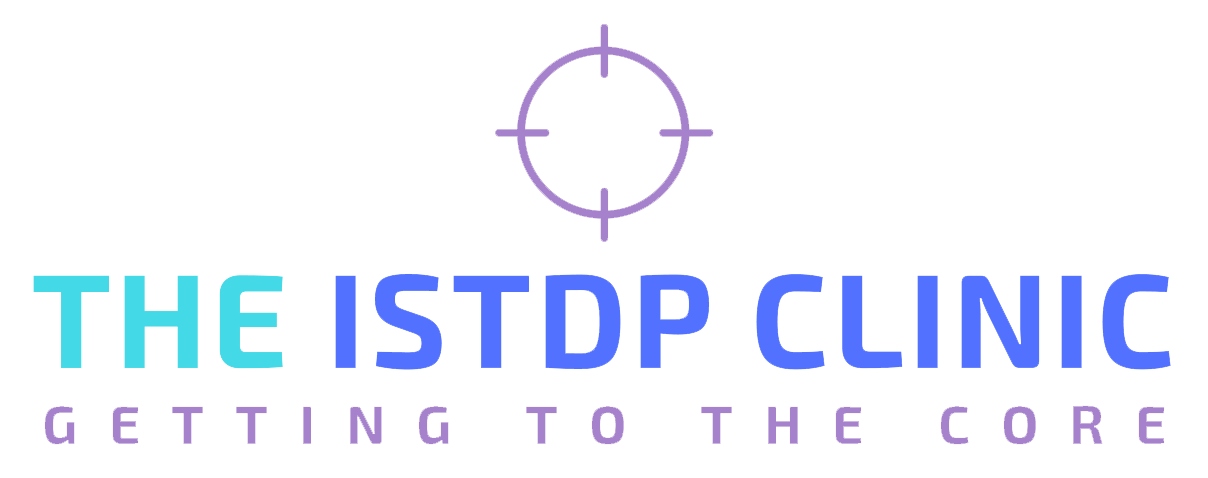What is ISTDP?
Got a problem in your life that is causing internal discomfort or distress, or makes you do things that are bad for you or that you later regret?
ISTDP is a highly focused form of talk therapy that has been shown to be effective in treating a wide range of mental health difficulties including personality disorders, eating disorders, anxiety problems, trauma-related problems, depression and self-defeating patterns (e.g., drug and alcohol misuse, gambling, relationship problems). It has also been found helpful in treating somatic complaints that may or may not have an identified underlying medical cause.
ISTDP was developed over 50 years ago by Dr Habib Davanloo, MD and has been taught and researched by other Psychiatrists who trained with Davanloo. Based upon attachment theory, neuroscience and psychodynamic theory, ISTDP seeks to identify and address any underlying defence mechanisms and symptoms.
It operates from an understanding that most psychological concerns stem from attachment difficulties experienced earlier in our lives and the healing process works by identifying those experiences (which are usually repressed), the emotions triggered by those experiences (e.g., pain, rage, guilt about the rage and grief), and the impact those unprocessed emotions have been having on you. It’s believed that in response to our emotions, we develop different coping strategies called “defences” which are emotional, psychological and behavioural mechanisms designed to prevent or minimise the amount of emotional pain triggered by those tragic or unfortunate experiences.
Unfortunately, as those defences (coping strategies) are usually developed earlier in our lives, they fail us as we mature, which is when we may begin to face further problems in life because, when we continue to use the same defences we developed when we were younger, we lose the ability to respond in more sophisticated and elegant ways to life’s problems.
This plays out throughout the lifespan, particularly through interpersonal relationships as closeness with other people usually stirs up the old emotions that weren’t processed properly because of the circumstances not being supportive or because our beliefs that we need to push those emotions down to be or remain acceptable and to remain connected. As a result, we can develop a belief that we are inherently bad (worthless or unlovable) and a tendency to pull away from intimacy (i.e., emotionally distance ourselves from others), which results in us becoming disconnected from our own feelings and from being able to feel cared for by others.
This creates further difficulties because we can then become fearful of intimacy as it stirs up emotions, which triggers anxiety. The impact of this can depression, self-esteem issues, eating problems, drinking problems, gambling problems, self-sabotage and intimacy issues as well as other types of rigid or compulsive behaviour patterns seen in OCD and PTSD.
ISTDP is an interactive therapy where the client and therapist work together to identify the way the client experiences their anxiety, and the defences which prevent the experience of unwanted or painful feelings. As a team, the therapist and client work to try and overcome all of the defences, and to allow the repressed feelings to surface, so that they you work through all of the feelings, thoughts and memories attached to those memories and to facilitate a healthy resolution to those internally conflicted unconscious emotions. In this manner, the defence system is restructured, anxiety regulation is improved, and people become free to feel close to those that love them. The desire for close, intimate relationships and resolution of mental health concerns is the goal.
How do I know if ISTDP is right for Me?
If you believe that you have become emotionally “blocked”, “repressed”, “numb”, or even “dysregulated” and “explosive” and don’t like being that way anymore, then ISTDP could help you. However, the best way to assess if ISTDP is the right treatment for you is to have a “Trial Therapy”. This is an extended session (2 hours) where you and your therapist will begin to identify and focus on treating your problems. The Trial Therapy provides you with an opportunity to experience the therapy for yourself and to help you decide if it could be beneficial for you.
In the Trial Therapy, your therapist will try to focus on your feelings, and to understand you on an emotional level, not just an intellectual level. As such, the goal in the Trial Therapy is not primarily focused on your background history, but is designed to get a better idea of who you are as a person in the here and now, today, and how you relate to your own emotions.
If experiencing your emotions leaves you feeling overwhelmed, ISTDP can help you build your capacity to tolerate your mixed emotions and help you understand the meaning to your behaviours, allowing you to gain conscious control over previous self-sabotaging behaviours, and increasing self-compassion and healthy goal-oriented behaviours.
The benefits of ISTDP come from being able to overcome your own defences that have been preventing you from experiencing complex feelings, which are activated in your outside life. In exploring these defences, links to memories and painful emotions from the past will be raised and dealt with, relieving present defences, as well as symptoms such as depression, anxiety, headaches, bowel issues and nausea, medically unexplained symptoms and pains, obsessive and negative thoughts, relationship difficulties and emotional detachment.
How will it work in practice?
Anxiety about meeting a psychologist is common, but the ISTDP therapist will aim to use this anxiety to help you identify the areas that are contributing to your problems and to examine the underlying emotions driving your symptoms or difficulties, by encouraging you to experience your feelings in an honest and truthful way. In experiencing the complex emotions underneath the anxiety without being negated by your own defences, symptoms are removed, and health and balance are restored. This internally focused therapy will allow you greater insight into yourself, your emotions, your relationships with others and the world around you.
How does ISTDP differ to CBT or ACT?
ISTDP really makes use of the knowledge that our problems were created as a result of some kind of disruption that occurred to one of more of our attachments with other people at key points in our development, and as such ISTDP utilises the most effective treatment element in psychotherapy – the therapeutic relationship.
What this means is in ISTDP you will not be given “skills” by the therapist. Instead the therapist’s role is to help you better understand yourself, make your own decisions about your thoughts and behaviour, and facilitate you discovering the best methods to help yourself, by helping you face the true feelings you have been avoiding. It does this by encouraging you to enter into a relationship with the therapist that is based on being completely honest and truthful no matter how painful, embarrassing, or shameful. In ISTDP, it is assumed that, as the client, you know more about yourself than anyone else in the world, and as such you are in the best position to identify and experience your own feelings and use that to identify your own needs so that you can make better choices for yourself.
The therapist’s role is to notice and point out the ways you may be preventing yourself from being completely honest and truthful about your feelings during the therapy, and let you decide what to do about it. This can be frustrating for clients as the therapist does not take the traditional role in therapy of being the “expert”, as an ISTDP will not presume to know what’s best for you. Instead, the ISTDP therapist will help you to explore and discover your true self, your real needs, and to help clarify the behaviour patterns and symptoms that resulted from complex emotional experiences that were previously avoided, to help facilitate the healing of emotional pain, which will free you to become your best self.
If you think this approach may be for you – or you are interested in using the ISTDP approach for accelerated treatment of emotional and attachment difficulties –consider making an appointment with an ISTDP therapist to explore your present problems and assess your emotional health.

